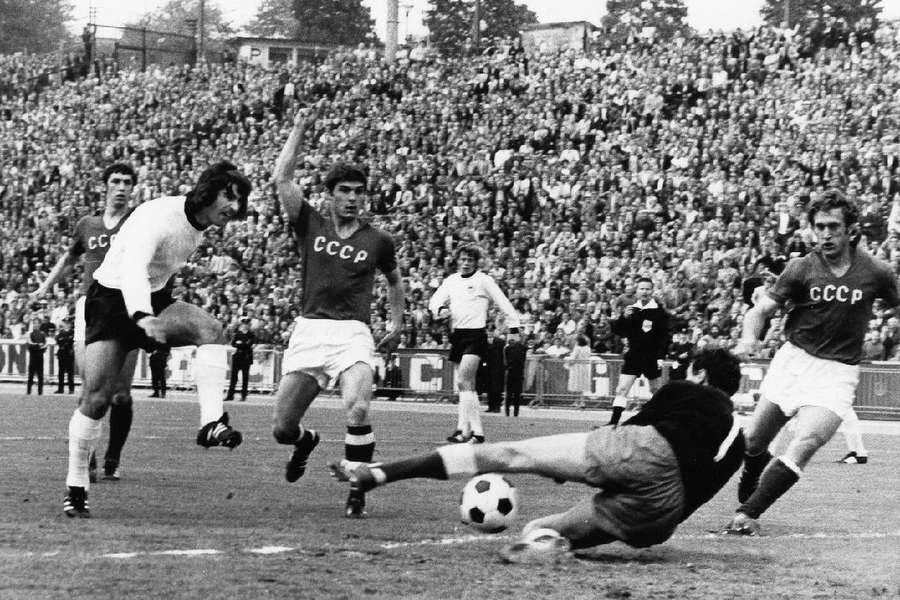In 1972, Belgium hosted the European Championship finals, which took place in four different locations. The semi-finals took place at the Stade Emile Verse in Brussels and the Bosuilstadion in Antwerp.
The tournament kept the same structure as four years previous. The qualifying tournament consisted of 32 teams divided into eight groups of four, with the matches being played between 1970 and 1971.
The group winners advanced to the quarter-finals with two legs, played home and away, in April and May 1972. The last four teams then reached the semi-finals, which was virtually the final stage of the tournament, with the matches taking place in Belgium from the 14th to the 18th of June.
West Germany win first title
The semi-finals included the hosts Belgium, eventual champions West Germany, runners-up the Soviet Union and Hungary, who had reached the finals for the second time after the 1964 tournament, where they finished third after beating Denmark.
West Germany, led by top scorer Gerd Muller and captain Franz Beckenbauer, beat hosts Belgium 2-1 to secure their place in the grand final against the USSR after the Soviets had also beaten Hungary 1-0.
Subsequently, Belgium won the third-place match against Hungary 2-1 at the Stade Marcel Dufrasne in Liege, and the deciding final between the Germans and the USSR was played at the Heysel stadium in Brussels.
Team of the tournament
Goalkeeper: Evgeni Rudakov (USSR)
Defenders: Revaz Dzodzuashvili (USSR), Franz Beckenbauer (GER), Paul Breitner (GER), Murtaz Khurtsilava (USSR)
Midfielders: Uli Hoeness (GER), Gunter Netzer (GER), Herbert Wimmer (GER)
Forwards: Raoul Lambert (BEL), Jupp Heynckes (GER), Gerd Muller (GER)
Muller: 'We weren't afraid of the Russians'
The masterful Gerd Muller, nicknamed 'Der Bomber', had already scored 365 goals in 427 Bundesliga appearances for Bayern by that point. The top scorer at that year's Euros with four goals, he scored a brace for West Germany in the final against the USSR as the Germans won 3-0, with Herbert Wimmer also adding his name to the scoresheet.
Twenty-three days before the final in Brussels, West Germany and the USSR had met in a friendly match, which the Germans won 4-1, with all the goals for the 1972 champions being scored by Muller.
"Everything worked perfectly. The team worked, so did the coach and it was good. We didn't fear the Russians in the final. We had beaten them before and we knew how to score. We played well," Muller said after his country's win in the final.
Netzer voted Player of the Tournament
Hard as it may seem to believe, in 1972, the year they lifted the trophy, West Germany marked their first appearance in the finals of a European tournament.
Previously, the Germans had declined to participate in 1960 and 1964, citing the problematic match schedule.
They eventually decided to take part in 1968 but failed to qualify for the quarter-finals, their path ending in the group stage, where they finished one point behind Yugoslavia, who later became runners-up.
At the 1972 European Championship, where West Germany would finally lift the long-awaited trophy, the tournament's best player was neither Muller nor Beckenbauer, to the surprise of many football fans.
Gunter Netzer was named as West Germany's best player. Netzer was an attacking midfielder who dictated play in the midfield and played excellent passes into the final third for the forwards.
That same year, Netzer, who played in the Bundesliga for Monchengladbach, was voted Germany's Best Footballer, a distinction he received the following season.
